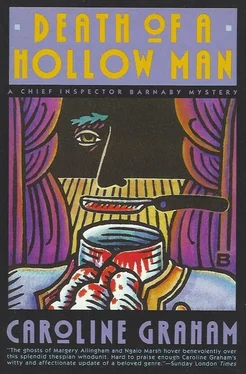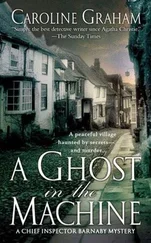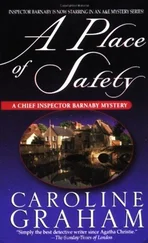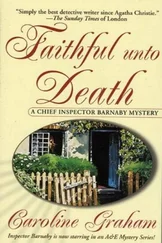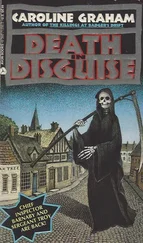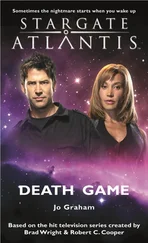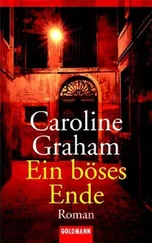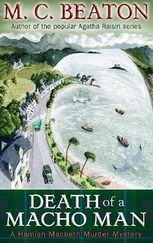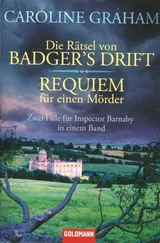“Oh!” Deidre stepped back awkwardly. “David … What a … Come in … that is … come in. What a surprise. I mean, what a nice surprise …” She chattered nervously (no one from the company had ever visited her at home before) as she led him to the kitchen. On the threshold she remembered the state of the place, backed away, and opened the door of the sitting room.
“Please … sit down … how nice … how lovely to see you. Um … can I get you anything … some tea?”
“No thank you, Deidre. Not at the moment.”
David sat, as slowly and calmly as he did everything, on the Victorian button-backed nursing chair, and removed his corduroy cap. He had on a beautiful dark green soft tweed suit that Deidre had never seen before, and looked very smart. She wondered where on earth he was going. Then he stood up again, and Deidre fluttered to a halt somewhere between the piano and the walnut tallboy.
David’s flowers were long-stemmed apricot roses, the flowers shaped like immaculate candle flames. The florist had assured him that in spite of being scentless and unnaturally uniform, they were the finest in the shop and had been flown in from the Canaries only yesterday. David, starting as he meant to go on, had bought every bloom in the bucket (seventeen) at a cost of thirty-four pounds. Now, he held them out to Deidre, and she closed the gap between them, reaching out hesitantly.
“Thank you … that is kind. Actually, I’ve already been to the hospital, but I’ll be going again on Sunday. I’m sure my father will love them. I’ll just get a vase.”
“I don’t think you quite understand, Deidre.” David stopped her as she turned away. “The flowers are not for your father. They’re for you.”
“For … for me ? But … I’m not ill…”
David smiled at this. He further narrowed the gap between them and bent upon her a look of such loving kindness that she all but burst into tears. Then he stretched out his green tweedy arm and drew her to him.
“Ohhh…” breathed Deidre, hope and disbelief shining equally in her eyes. “I didn’t… I didn’t know … I didn’t understand…”
She did weep then; little sobs of joy. Sunny, much concerned, started to whimper. “It’s all right.” She bent down and patted him. “Everything’s all right.”
“I didn’t know you had a dog.”
“It’s a long story. Shall I tell you? Perhaps while we have some tea—’’ She turned toward the door, but David drew her back.
“In a moment. I’ve been waiting a long time to do this. And we have the rest of our lives to have some tea.” And then he kissed her.
She nestled once more against his shoulder, and his arm tightened. It was not a white-feathered arm, and it was certainly not twelve feet tall, yet such was the feeling of exhilarating comfort, for a moment it seemed to Deidre that she might have been enclosed in a tightly furled wing.
Rosa sat in the middle of row D, feeling disappointed. She had been convinced there would be an “atmosphere” at the audition for Vanya . Surely the unseemly departure of the company’s previous leading man would mark the proceedings in some way? Slightly lowered tones perhaps; a nice hesitancy in putting oneself forward for the unexpectedly vacant title role. But no, everything was proceeding as usual. Actors striding on and off the stage, Harold pontificating, Deidre at her table. David Smy was in the back row next to his father with a piebald dog on his knee, and Kitty, who had had quite a bit of fun running away from Rosa with mock squeals of fright, was now leaning against the proscenium arch and sulking. She had come down not to read but to have a nice cozy chat with Nicholas, only to find him deep in conversation with Joycey’s showy daughter.
Joyce herself, hoping for the part of Marina, the elderly nurse, was waiting in the wings with Donald Everard. Clive, to everyone’s surprise, had cheekily taken to the stage to try for Telyegin. Boris, having just given Astrov’s “idle life” speech, was drinking Kanga’s piddle, and Riley rested on Avery’s bosom darting many a snappy glance over his shoulder at the dog in the back row, suspecting some planned territorial infringement.
When Clive had finished, Cully Barnaby stepped forward to read for Yelena, and Rosa sat up. No reason why the child shouldn’t make an attempt, of course. There was no denying that she was marginally nearer to the character’s age (twenty-six) than Rosa, or that, as a youngster, she’d had quite a little way with her onstage. Still … Rosa half settled back and waited, uneasy.
“You’re standing by the window,” called Harold. “You open it and talk, half looking out. From ‘my dear—don’t you understand’ … page two one five.”
Then Cully moved, not as Rosa had expected, toward the window at the back of the set, still in place from Amadeus , but right down to the footlights, where she pushed against an imaginary casement and leaned out, her lovely face stamped with irritated melancholy. She began to speak in a rich, sharp voice, vivid as an ache and not at all in the musical “Chekhovian” manner the CADS thought proper. Her anger flowed into the auditorium, powerful and bitter. Rosa, chilled to the marrow, felt her heart tumble out of its place and bounce against her ribs.
But Cully was hardly into the speech when two men appeared at the swing doors under the exit sign and walked, with measured tread, down the aisle. So unflurried and even was their stride (neither fast nor slow), so closely did the younger man emulate the bearing of his companion, that there was something almost comic in their sudden appearance. They might have been making an entrance in a musical comedy. Until you looked at the first one’s face.
Cully faltered, read one more line, stopped, and said, “Hello, Dad.”
“Well, really , Tom .. Harold got up. “Of all the times. We’re auditioning here. I hope this is important.”
“Extremely. Where are you going?” Tim had climbed out of his seat.
“To open some wine.”
“Sit down please. What I have to say won’t take long.” Tim sat down. “Perhaps everyone onstage and in the wings could come to the stalls. Save me screwing my neck around.”
Nicholas, Deidre, Joyce, and Cully clambered down from the stage. Donald Everard followed and slid into the seat next to his twin. The young detective in the raincoat sat on the steps leading from the stage, and Barnaby walked to the pass door at the end of row A, turned, and surveyed them all. Joyce, sitting next to her daughter, shivered as the cold, impersonal beam of her husband’s attention swept around the stalls. She felt suddenly alienated, and watched his profile tighten and become almost hawkish, with increasing feelings of distress. By the time he began to speak, she felt she was looking at a complete stranger. There was absolute quiet. Even Harold had fallen silent, though not for long, and Nicholas, innocent though he might be, thought, This is it, and experienced a thrill of alarm so strong it made him feel almost sick.
Barnaby began by saying, “I felt it only fair to keep you abreast with the current investigations pertaining to the Carmichael case.” What a tease, thought Boris. As if the police ever kept a suspect abreast of anything. Tom’s setting something up. ‘‘And I’d like to talk for a moment if I may about the character of the murdered man. It has always been my belief that an accurate assessment of the victim’s personality is the first step in an inquiry of this kind. Random killing apart, a man or woman is usually done away with because of what they think or believe or say or do. In other words, because of the sort of person they are.”
‘‘Well, I hope we’re not going to waste much time going over that,” interrupted Harold. “We all know what sort of person Esslyn was.”
Читать дальше
